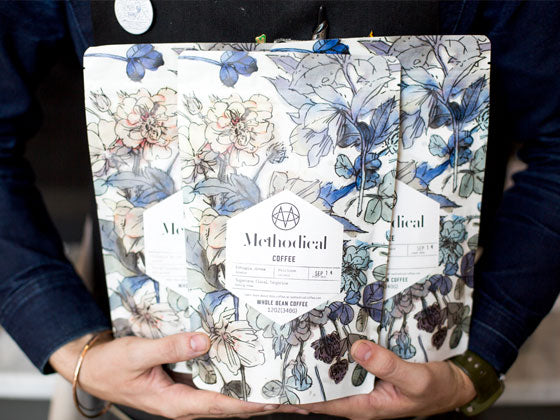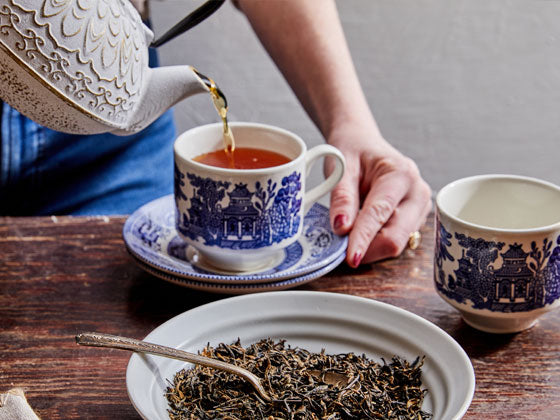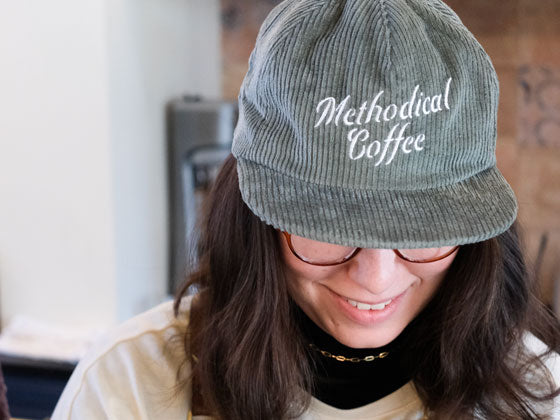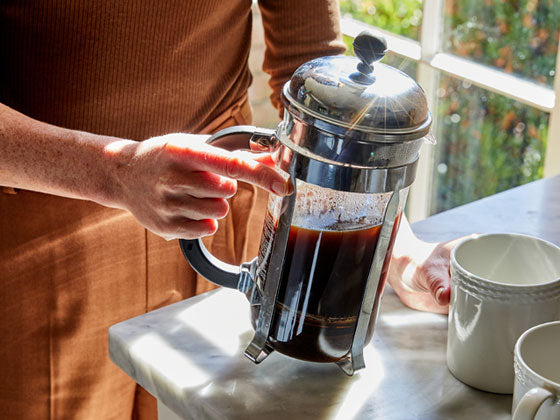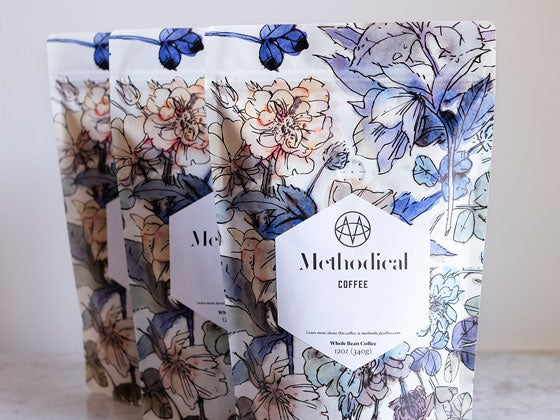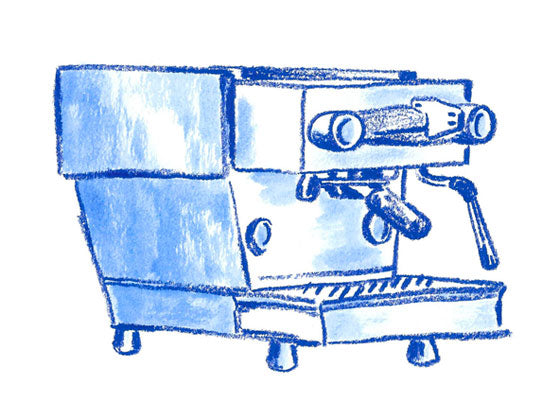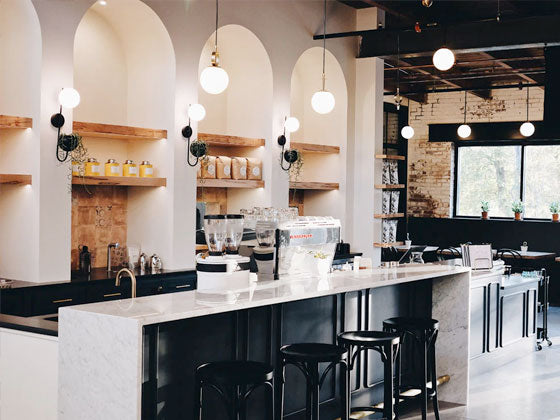If you've ever stashed a bag of beans in the freezer and wondered whether that actually does keep the coffee fresh, you’re not alone. Freezing coffee is one of the most hotly debated topics in the coffee world. Some swear by it for preserving flavor, while others avoid it altogether. So what’s the real story? We’re breaking down when freezing makes sense, how to do it properly, and when to steer clear.
The enemies of fresh coffee
Before we can talk about freezing, we need to understand what makes coffee go stale in the first place. Once beans are roasted, their clock starts ticking, and several environmental factors begin to work against their flavor.
The main culprits are:
- Oxygen: As soon as beans are exposed to air, oxidation begins. This dulls the vibrant flavors and aromatic oils that make fresh coffee shine.
- Moisture: Coffee beans are hygroscopic, meaning they absorb moisture from their environment. Even small amounts of humidity can alter the structure of the bean and cause mold or spoilage.
- Heat: Higher temperatures speed up chemical reactions that break down flavor compounds. That warm spot next to your stove? Not ideal.
-
Light: Exposure to light, especially ultraviolet (UV) rays, can degrade the oils and lipids in the beans, resulting in flat or “off” flavors.
The goal of proper storage (at room temperature or in the freezer) is to limit these threats as much as possible. And while freezing can help slow some of these processes, it has its own risks if done incorrectly.
How freezing affects coffee beans
Freezing coffee beans isn’t a new idea, but it’s one that’s gained traction with home baristas and even professionals alike. The logic is simple: lower temperatures slow chemical reactions, which can help preserve flavor. And in many cases, that’s true… but only if you do it right.
The science behind freezing beans
Freezing halts or significantly slows the oxidation process that normally dulls coffee’s aroma and flavor over time. It also helps preserve the volatile compounds responsible for those rich, complex tasting notes that make specialty coffee so enjoyable.
However, freezing isn’t without risks. The biggest issue is moisture. If beans aren’t stored in a truly airtight container, they can absorb moisture from your freezer, and that can lead to freezer burn, off-flavors, and even a loss of roast clarity.
There’s also some concern about how freezing affects the cell structure of coffee beans, particularly darker roasts, which are more brittle. Over time, this can slightly change the grind consistency or lead to more “fines” (tiny particles) when you grind.
When and why to freeze coffee beans
In the right situations, freezing coffee beans can be a great way to lock in freshness and stretch out a favorite roast. Here’s when freezing your beans actually makes sense.
You buy in bulk
Maybe you love stocking up during a sale or grabbing multiple bags from your favorite roaster. Freezing what you won’t use right away helps preserve flavor until you're ready.
You’re saving a special roast
Got a limited-edition single origin or a rare microlot you want to enjoy slowly? Freezing can keep it tasting fresh, one brew at a time.
You don’t drink coffee every day
If you’re a weekend-only kind of brewer, storing beans at room temperature could mean stale coffee by the time you finish the bag. Freezing gives you a longer runway.
How to freeze coffee beans the right way
Freezing coffee isn’t just about tossing a half-used bag into the freezer and hoping for the best. To truly preserve flavor and avoid freezer funk, a little care goes a long way.
Tips for freezing coffee properly
- Use airtight packaging: Remember, oxygen is the enemy. Vacuum-sealed bags or airtight containers (with as little air as possible) work best. Resealing the original coffee bag won’t cut it unless it’s truly air-tight.
- Divide into portions: Only freeze what you won’t use in the next 1–2 weeks. Break large bags into smaller, single-use batches so you can thaw only what you need without exposing the rest to air or moisture.
- Keep it deep in the freezer: Store beans in the coldest, most stable part of your freezer—not in the door, which is subject to temperature fluctuations every time it opens.
- Label and date your bags: This makes it easy to rotate older beans to the front and use them while they’re still at peak quality.
One rule to remember
Once you thaw frozen coffee, don’t refreeze it. Repeated temperature changes increase the risk of condensation and degrade the flavor.
How to thaw and brew frozen coffee beans
When thawing coffee beans, allow them to come to room temperature before opening the container. If you open the bag while the beans are still cold, moisture from the air can condense on the surface, leading to unwanted water exposure.
Don’t rush the process! Let the container sit sealed at room temp for several hours (overnight works great). Once thawed, use the beans within a week or two for best flavor.
Whole beans vs. pre-ground
Always freeze whole beans if possible. Grinding before freezing increases surface area and speeds up flavor loss. Plus, pre-ground coffee is more likely to absorb moisture and take on off-flavors in the freezer.
Grind just before brewing, as usual. There’s no need to adjust your grind settings or brewing method, either. Your beans should behave normally once thawed, assuming they were stored well.
Learn more about fresh ground vs. pre-ground coffee →
When you shouldn’t freeze coffee beans
Freezing can be helpful, but it’s not always necessary. In fact, for a lot of coffee drinkers, it’s better to skip the freezer altogether.
You shouldn’t freeze your coffee if:
- You go through coffee quickly: If you brew daily and finish a bag within 1–2 weeks, you’re better off storing beans in your pantry. No freezer needed.
- You’re not sealing your beans properly: If you don’t have a vacuum sealer or airtight containers, freezing can do more harm than good. Exposure to moisture and freezer odors can ruin otherwise great beans.
- You store beans in and out of the freezer: Repeated thawing and refreezing causes condensation and flavor loss. If you can’t commit to one freeze-thaw cycle per portion, skip it.
Stay cool and brew better
Freezing coffee beans isn’t a one-size-fits-all solution, but when done right, it can help you extend the life of your favorite roasts without sacrificing flavor. If you drink coffee rarely or buy in bulk, freezing can be the perfect solution. Just remember: airtight packaging, portion control, and a little patience go a long way.
Looking to keep your coffee fresh the easy way? Explore our latest roasts and subscription options, delivered fresh, so you don’t even need to freeze.
You might also like:
- Best Water for Coffee: Your Guide to the Perfect Cup
- 4 Types of Coffee Beans: What Makes Them Different
- How Much Caffeine is in Coffee?
